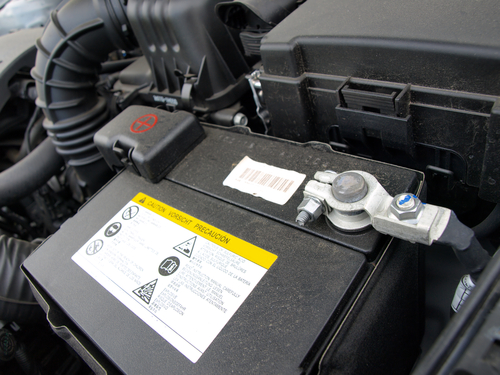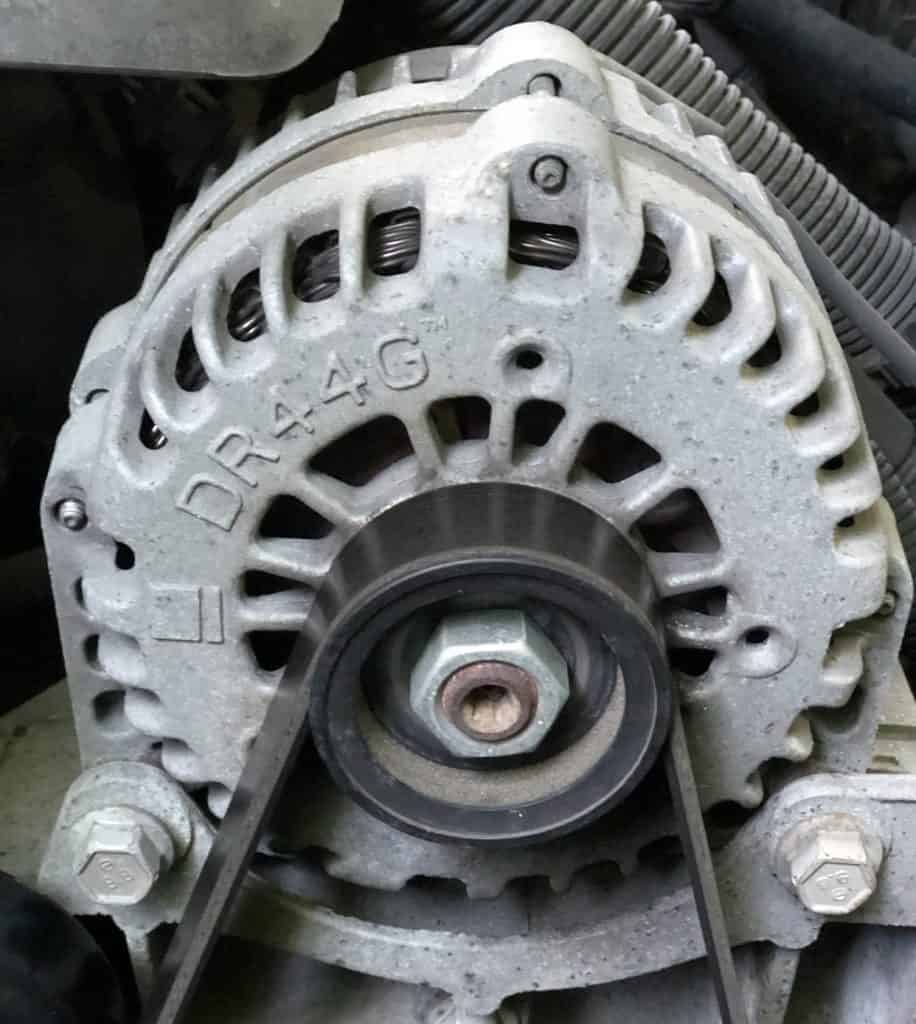
If your Toyota 4Runner’s battery is draining, it’s something that’ll need addressing right away. If it is draining while your 4Runner isn’t running, something is drawing current that shouldn’t be.
If the battery drains while driving, there’s likely an issue with your vehicle’s alternator.

The two primary causes for a battery to deplete are parasitic power loss or a faulty battery.
Toyota 4Runner: Battery Draining While Parked Causes
If your vehicle is running fine when you park it, and it won’t start, there is an issue with the charging system (alternator, battery, or battery cables) or a parasitic power draw.
Parasitic Power Draw

A parasitic power draw is when something is drawing current from your Toyota 4Runner’s battery after you turn the vehicle off, like an interior light or a malfunctioning component.
To fix this issue, you’ll need to test for a parasitic power draw. Here’s how:
Remove the negative cable from your 4Runner’s battery and use a multimeter to measure the draw. The draw should be less than 25 milliamps (0.025 amps). If it’s higher than that, then something is drawing current, and it must be addressed.
Before connecting a multimeter to the battery, verify that the dome light is shutting off when you close the doors. A faulty door switch (that turns the dome light on and off) frequently causes a parasitic power drain.
Other causes include a trunk/tailgate release switch that is always on, a headlight switch stuck in the “on” position, aftermarket accessories such as an alarm system or CD changer, damaged wiring harnesses, and faulty relays.
Battery Cables

Examine your 4Runner’s battery posts where they attach to the battery. If significant corrosion is present, use a wire brush to clean it. Corrosion can impede proper battery connection, leading to drainage issues.
There are specific battery post cleaners that you can buy. They are usually less than 10 bucks at the local parts store or Wal-Mart. Otherwise, sandpaper can work if you’re in a pinch, just make sure to wear gloves.
Bad Battery

When the battery depletes while parked, it’s likely due to the battery itself. If your 4Runner’s battery light illuminates while driving before parking, the alternator is probably responsible for the battery drainage (or in this case, not recharging).
If you didn’t see a battery light, and now your vehicle is dead when you start it, the first thing you need to look at is the battery.
Testing
A good anecdotal way to tell if there is a parasitic drain and not a bad battery is to unplug the negative battery cable when you park your vehicle for the period it usually takes for the battery to drain.
If it fires right back up when you hook the battery up, you need to be looking for a parasitic battery drain.
You can take it up to the local parts store and have your 4Runner’s battery tested. They’ll need to charge it for a while, so plan on dropping it off and returning a few hours later.
If it passes the test, it’s time to move on to the alternator.
Alternator

If the parasitic power draw isn’t the issue, and the battery, checks out, it’s time to test the alternator. You can do this at home with a voltmeter.
Testing at Home
Set the meter to measure AC volts and connect one of its leads to the positive side of the battery, then start your 4Runner. Connect the other lead to ground near the alternator.
The voltage should be above 13.5-14 volts when your 4Runner’s running; if it isn’t, you may need a new alternator. Switch the air conditioner to max A/C and turn on the headlights, then check that the voltage remains steady. The alternator should adjust nearly instantly.
Parts Store
Most parts stores can test an alternator for you to ensure it’s charging properly. However, they use a machine in store, so you’ll need to pull the alternator, which is why we suggest testing it with a voltmeter first.
Likely, the alternator didn’t sufficiently charge your 4Runner’s battery while the vehicle was in operation, resulting in a depleted battery.
Parts stores don’t charge anything for this service, they just want to sell you an alternator if you need it.

Battery Draining While Driving: Toyota 4Runner
If your battery is draining while driving, it is almost without exception the 4Runner’s alternator that is causing the problem. If it is you should see the battery or alternator light on, it indicates that the alternator is not creating the necessary voltage to charge the battery.
It could be a bad battery, or more likely a bad battery cable too. But it’s not very likely. If you hear a whining noise accompanied by the battery light, it’s almost guaranteed that it’s the alternator that is at fault.
Diagnosis

If your 4Runner’s battery is draining after being parked for a few days, here’s a solid order to diagnose the problem:
- The battery itself has gone bad and just can’t hold a charge long enough to be of any use after the vehicle sits and it drains.
- If unexpected power consumption occurs, begin by inspecting all lights. Check if the glove compartment light in your 4Runner turns off or if any map lights remain on. Examine accessory plugs for any connected devices drawing power, and look for aftermarket accessories. If none is found, an electrical issue could be the cause.
- Inspect the battery cables for corrosion. Clean if necessary.
- Use a multimeter to verify that there is no power draw. If there is, track down the power drawing accessory or short circuit.
- Test the battery (replace your battery if necessary).
- Test the alternator.
Conclusion: 4Runner’s Battery Draining
Good luck running down what is causing your battery to drain in your Toyota 4Runner. If there is anything you would like to add, please leave a comment below.
